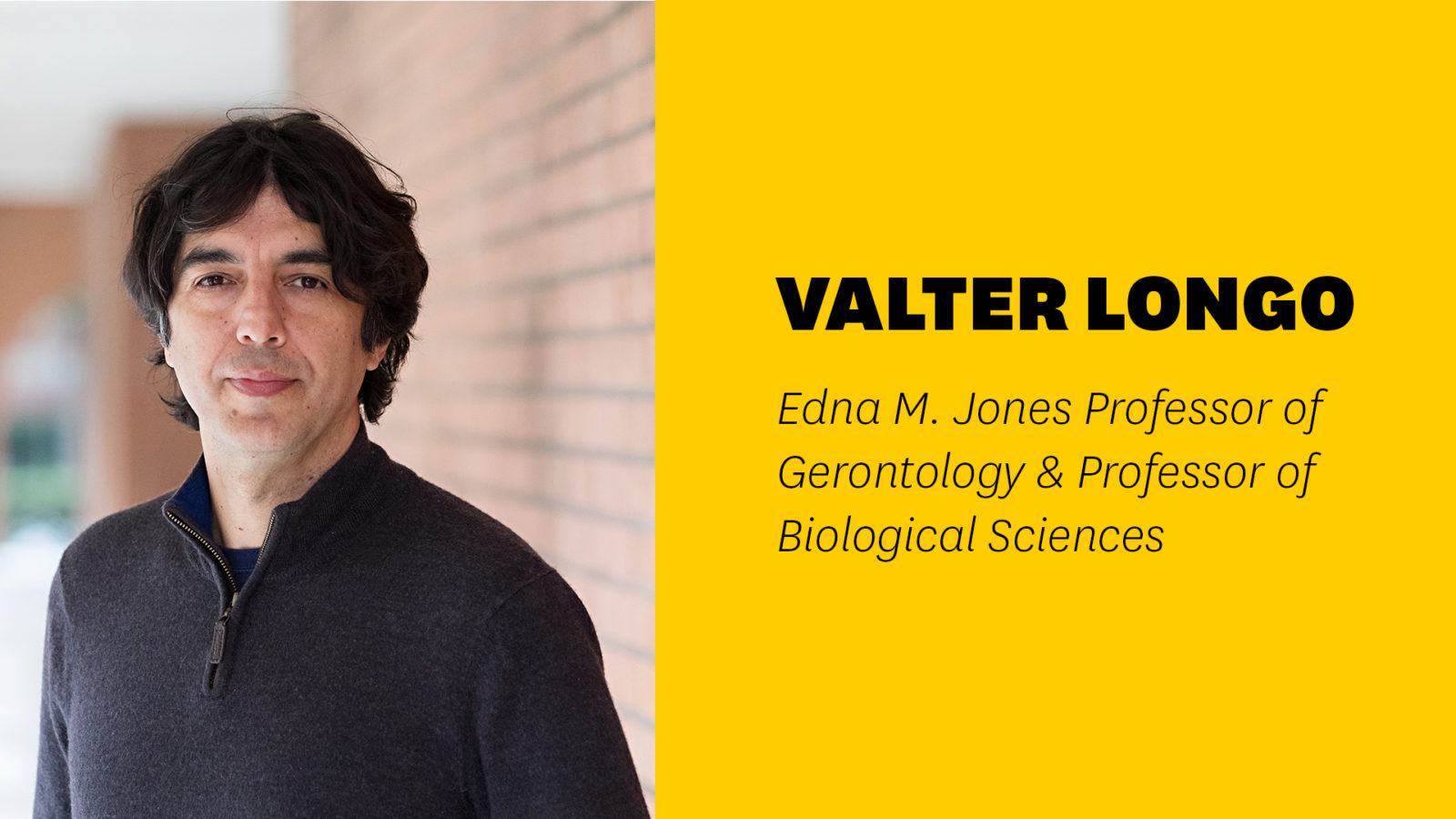Inspired by a mentor’s extreme experiments with caloric restriction, USC Leonard Davis School of Gerontology Professor Valter Longo explores how fasting-mimicking diets might help prevent disease, promote healthy aging, and prolong our ability to stay young.
Quotes from this episode
Longo’s ambitious goal for human longevity:
“I want to optimize the chance for people to make it to 110 healthy. That’s it. So, to make it to 110 healthy, you have to solve it all, and it’s a very ambitious plan. And of course if you get cancer or you get diabetes or you get Alzheimer’s, that’s not going to happen. So then the focus, of course, is on healthy longevity for the sake of reaching that goal.”
On accepting that most drastic dietary changes don’t stick for the long term:
“The reality is 90 percent of people are never going to change what they eat. Neither the quantities, nor the type. They may make small changes, but they’re not going to make big changes in the long run. They could make big changes for six months, for 12 months and then they’d go back. That’s a reality, right? We have a million studies showing that. So then people should start dealing with that reality.”
Fasting means different things to different people and needs to be undertaken carefully:
“I always say that fasting doesn’t really mean anything. Fasting is like saying eating. As we all know now if you say, ‘Oh, is eating good for you?’ Well, yes and no. So it can be very good or very bad. It depends what you eat, and fasting is the same way. It can be very good or very bad, depending on what you do, how long you do it for, who you are, etc. So, we’d been trying to move away from words that don’t mean anything, like intermittent fasting, and really started saying, ‘Pay attention, be careful,’ because fasting-based intervention can be very powerful or very damaging.”
The enormous potential of food to prevent and address disease:
“There is nothing that even comes close to the benefit that we will have for almost nothing, free or close to free, by changing food habits. And it could be revolutionary.”
Learn more about Professor Longo and his work at gero.usc.edu/faculty/longo.

